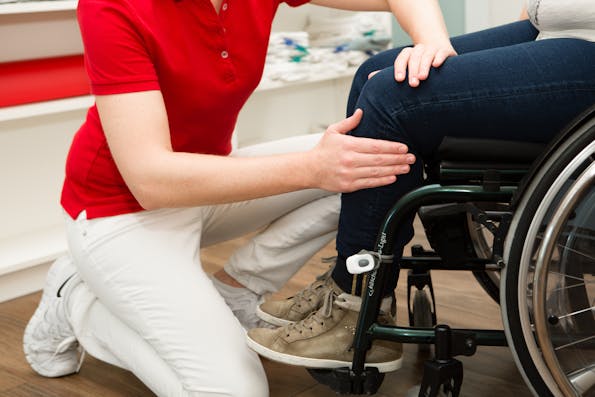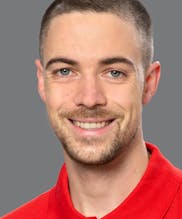
Imagine waking up and there’s nothing left. You can’t lift your left arm, you can’t move your left leg. If you want to speak, only unclear words come out of your mouth. Diagnosis: Stroke.
Just a few years ago patients with paralysis and brain damage were considered to be nursing cases. Today a stroke can be treated effectively. Most important is immediate medical care in hospital and early neurophysiotherapy. Studies have shown that the brain recovers best in the first three weeks.
Bobath concept
The PHYSIOZENTRUM approach is based on the Bobath concept, the world’s most popular approach for the treatment of neurological movement disorders. The Bobath concept relies on the brain’s ability to reorganize. It is assumed that healthy brain regions can take over tasks of damaged regions.
Patients with multiple sclerosis
Among patients with multiple sclerosis, for example, it is often not the control centres that are affected, but only the connections. Through constant repetition the brain establishes new nerve connections. In doing so movement sequences are rehearsed. This mechanism works not only for patients with ms and strokes, but also for a whole range of neurological diseases such as parkinson’s disease, ataxia (coordination disorders), cerebral palsy or peripheral nerve damage.
Neurophysiotherapy involves an initial analysis in which the patient’s movement behaviour is examined in various situations. This way the treatment strategy can be defined.
Based on the individual possibilities of a patient
The Bobath concept is not a particular method or technique that must always be completed in the same way, but it is based on the individual possibilities and limits (“resources”) of a patient. The physiotherapist who is qualified in neurotherapy creates a training program for the patient based on the individual activities which are typical for daily life. These activities include body care and communication (facial expressions and gestures), eating and drinking, dressing and undressing, walking and climbing stairs, playing and leisure.
Interdisciplinary cooperation is central to the treatments success. The brain learns not only during physiotherapy, but 24 hours a day. For this reason we work closely with doctors and nursing staff/Spitex. Particularly important in the rehabilitation of neurological diseases is the cooperation of relatives who should activate the patient. If everyone is involved, daily routine becomes a permanent therapy.
